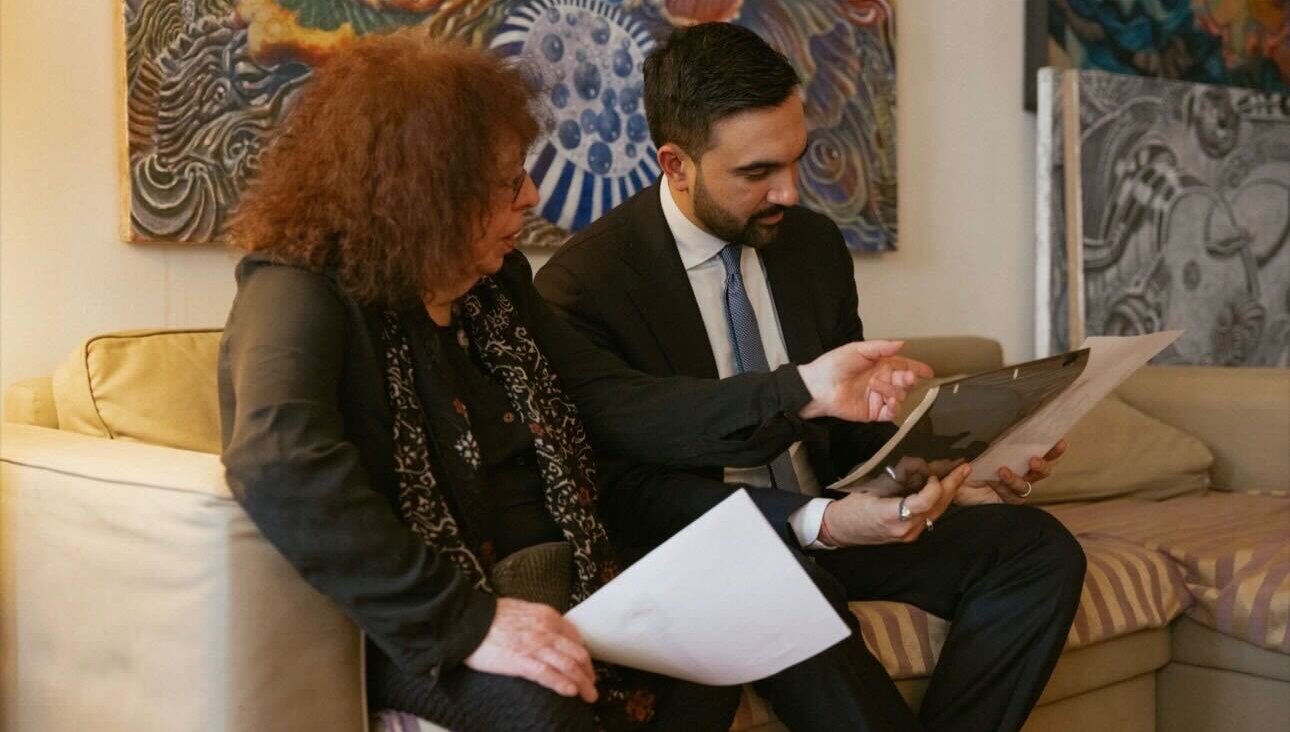The Ingatherers

Graphic by Angelie Zaslavsky
The United States and Israel were born to ingather — the U.S. as the proverbial nation of immigrants, though not all its early settlers came here voluntarily; the modern state of Israel, as the haven and magnet for dispersed Jews everywhere. That is the ideal, anyhow. The reality of who is allowed to enter and who is allowed to stay is much more complicated. As is the salient question now of who is deported.
After years of stalled negotiations in Congress over immigration reform, the Obama administration has finally decided to act on its own to humanize American procedures. Under a new policy, a working group from the Homeland Security and Justice Departments is reviewing about 300,000 cases currently before immigration courts with the aim of stopping deportations of illegal immigrants whose only crime is to be in America. In particular, officials are examining records of those who came here illegally when they were children, an effort to do what stalled legislation in Congress should have done, which is to grant legal status to youngsters brought here by their parents through no fault of their own.
This offer of amnesty is rooted in both generosity and practicality. There is simply no reasonable way to deport all the millions of people who entered this country illegally and — even if we don’t want to admit it — who have become part of the fabric of American life. Comprehensive immigration reform should have also included efforts to bolster enforcement and penalties, but with Congress unwilling to act, the administration did the next best thing.
Contrast that with what is happening in Tel Aviv now in the case of Ofek Castillo, a four-year-old girl, born in Israel to a Filipino foreign worker. Ofek was to be the first child deported under a new policy directed at the children of migrant workers, because she was not enrolled in a state school last year or for the coming year. Her deportation was halted by a Tel Aviv court just moments before she and her mother were to board a plane back to the Phillipines, and they were held in a detention center at the airport. An appeal failed on Thursday and the mother and child were expected to be flown out of Israel later in the day.
So upsetting is this case that even Sara Netanyahu, the Prime Minister’s wife, not known for frequent public displays of compassion, pleaded with the interior ministry to halt the deportation.
No nation can make citizenship policy based on an individual case, no matter how sympathetic. But Ofek Castillo is one of 400 children of migrant workers targeted for deportation under a new policy that has been criticized by even those who align themselves with this government. As a group of Holocaust survivors in Israel wrote last year: “We cannot accept that a Jewish government could operate without a conscience and in such an inhumane way. These children were born here and they study in state schools. They cannot be the ones to pay the price as part of an attempt to solve the economic and employment problems of the state.”
Who does pay the price for immigration policy that runs counter to core national values? Those who favor stricter controls in Israel argue on grounds of safety and security. Those who promote even more stringent regulations in this country add up the costs of providing health care and education to illegal immigrants, along with the jobs they supposedly snare from citizens.
But those formulas ignore the other side of the equation — the manifold contributions made by those willing to leave their homelands for the opportunity of a better life for them and their children. Yes, the rules need to be followed. But the law also needs to acknowledge and celebrate the extraordinary appeal of these two special nations.














